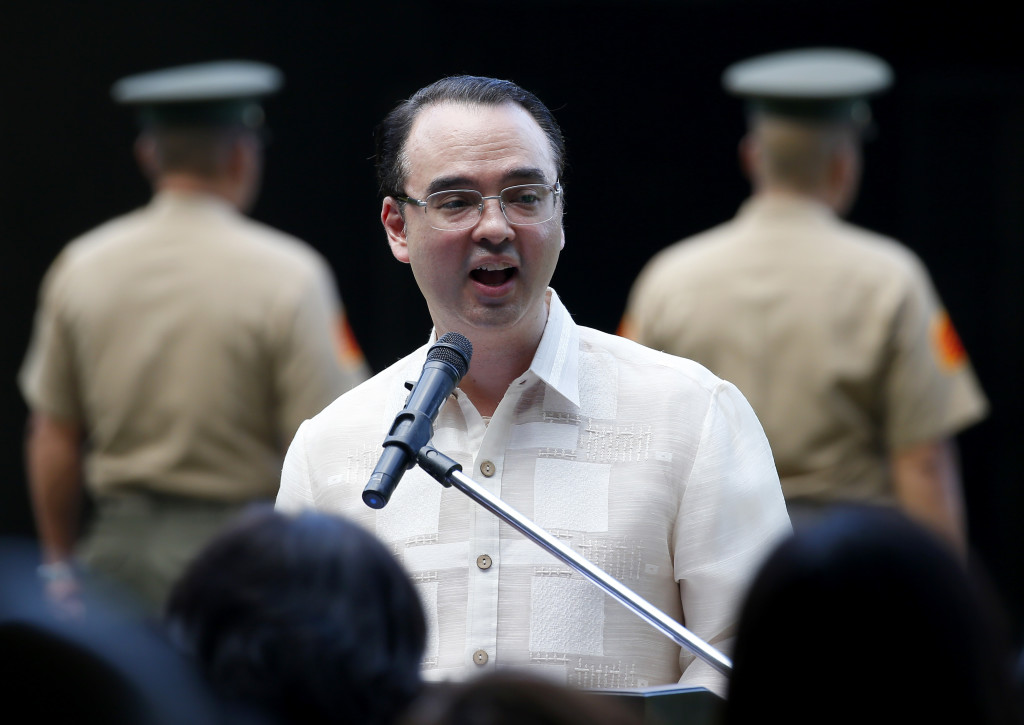Jakarta seeks tripartite counterterrorism meet

Philippine Foreign Affairs Secretary Alan Peter Cayetano. AP
Indonesia is seeking a tripartite conference with the Philippines and Malaysia to discuss action plans to stop terrorism, Foreign Secretary Alan Peter Cayetano said on Monday.
Cayetano said Indonesian Foreign Minister Retno Marsudi expressed concern over developments in Mindanao which had, over the years, became a refuge for fugitives from Indonesia and Malaysia.
“The Indonesian foreign minister is proposing a meeting, a small conference where we’ll be able to talk about the situation and what we can do together with Malaysia,” Cayetano told reporters.
Both countries, which forged a maritime security agreement with the Philippines last year, expressed interest in helping resolve the Marawi conflict that also involved their nationals.
The agreement allows Malaysian and Indonesian law enforcers to pursue fleeing criminals, even in Philippine territorial waters and vice versa.
Article continues after this advertisementAt the recent Shangri-la Dialogue in Singapore, Malaysian defense minister Hishammuddin Hussein said joint maritime patrols was only one step in fighting terrorism in the region.
Article continues after this advertisementIndonesian defense minister Ryamizard Ryacudu claimed there were about 1,000 foreign terrorists in Mindanao, 40 of them from Indonesia.
Cayetano said there had been “very good conversations” with the two countries over the last 10 months and the Philippines would respond to Jakarta’s proposal soon, maybe even “in a day or two.”
According to Cayetano, President Duterte’s warnings about Southeast Asian countries becoming terrorist targets have unfortunately come true.
“Unfortunately, we were first. We want to cooperate very well with Indonesia and Malaysia so they won’t also suffer at the hands of extremists,” he said.
There could be operations either abroad or in the Philippines to neutralize the extremists of different nationalities who cross the borders of the countries to fight for the Islamic State, he added.
Cayetano said the plan of the extremists in Marawi was much bigger than expected, and the groups actually wanted to take over two to three cities.
“It’s more than an audition. It’s true and its correct that the [Islamic State group] is in the Philippines and if we don’t act proactively, aggressively, quickly, it will spread,” he said.
Analysts have said that the porous maritime borders between the three countries made it hard to detect the movement of militants.
Security analyst Otso Iho of Jane’s Terrorism and Insurgency Centre, said Mindanao was “the primary area in the region where Islamist militant groups are still able to operate with some freedom of operation, run training camps, and conduct frequent attacks.”
“It’s also the location where the vast majority of Southeast Asian groups that have pledged allegiance to the Islamic State are based,” the analyst added.